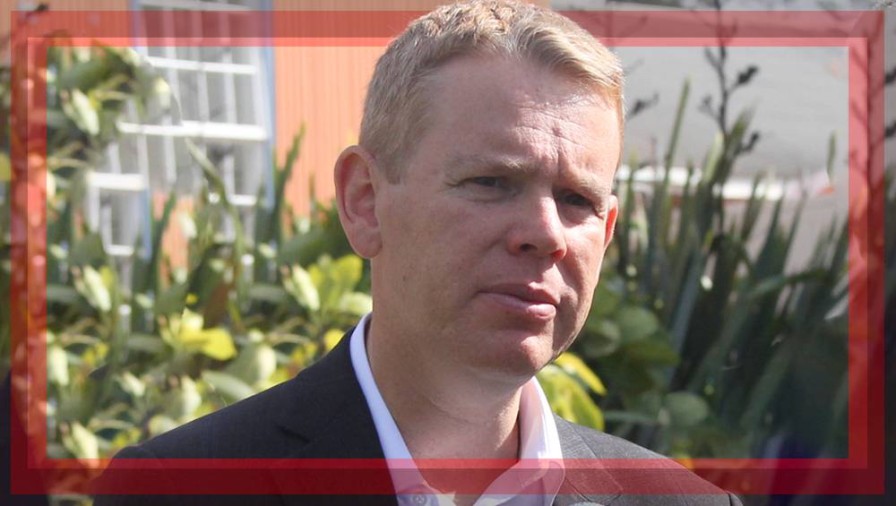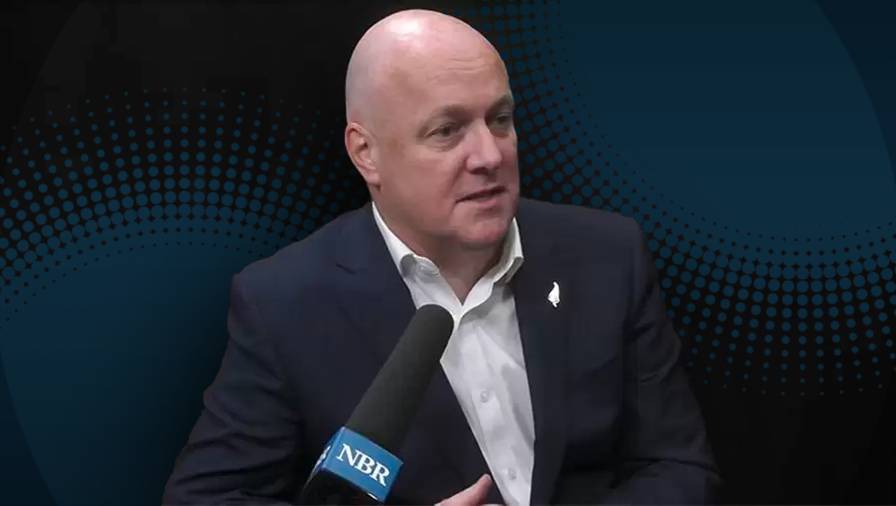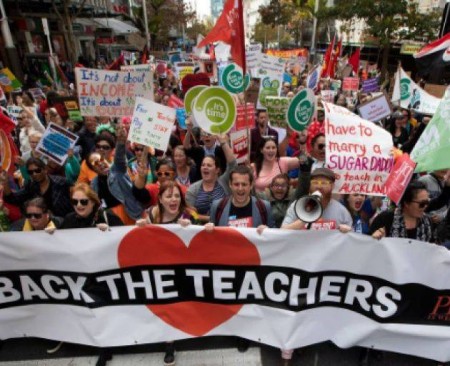Policy silly season, banning cell phones, teachers’ pay
ANALYSIS: All parties are putting out new policies, often with little detail about how they would work.
NBR political editor Brent Edwards speaks with Grant Walker.
ANALYSIS: All parties are putting out new policies, often with little detail about how they would work.
NBR political editor Brent Edwards speaks with Grant Walker.
There must be an election coming up.
Political parties are announcing policies – according to NBR presenter Grant Walker – quicker than a kilo of butter melting on an Athens sidewalk. As he notes, in the current heatwave, that is pretty quick.
Many of the policy announcements are aspirational and lack detail, even those that are strictly government announcements, rather than party policy announcements. Take the Government’s announcement of its preferred options for a second Auckland Harbour crossing. Altogether, the wish list – which includes extending light rail – adds up to $45 billion but there is still a lot of detail to fill in. Transport Minister David Parker, though, has told Waka Kotahi to get on with it and start acquiring the remaining land needed for the vast transport plan.
Walker suggests it is a bit arrogant, with the election just two months away. But, as Prime Minister Chris Hipkins has pointed out, the Government still has to govern and, presumably, the land – if acquired – will still be needed for transport improvements even if Labour’s ambitious plans are dumped. And the full proposal will fall by the wayside if there is a change of government after October 14, although National is also committed to a second harbour crossing.
Meanwhile, Labour’s plan – which includes building two car tunnels as well as a light rail tunnel under the harbour – has been heavily criticised by the Green Party because it has too much emphasis on cars at a time when greenhouse gas emissions need to be cut drastically.
Walker also suggests the Green Party is dreaming in proposing free dental care, which would be paid for by imposing a wealth tax. Industry leaders say it would take 10 years to implement and Hipkins has also poured cold water on the idea. The current system, though, means many people go without decent dental care because it is unaffordable and that does lead to other health problems.
It all points to the disingenuous claim that this country has a free public health system. Only parts of it are free and, when it comes to dental care, the costs are prohibitive for many.

Prime Minister Chris Hipkins.
Walker asks whether the policy will win the Greens any more votes? It is hard to tell, but it surely is a policy that would appeal to those on low and middle incomes who have not visited a dentist for years because of cost.
This week the Government announced a joint venture of sorts with American multi-national investment company BlackRock, which will set up an initial $2b fund to invest in renewable electricity projects such as wind farms, solar energy projects, and battery storage.
Walker says it sounds great but also appears to be another pipe dream, with the likelihood that projects will have to go through overseas investment regulations and the planning process. Those that involve substantial overseas investment will be covered by overseas investment rules, but BlackRock is also looking to attract money from New Zealand institutional investors, including from the New Zealand Superannuation Fund and ACC.
Presumably BlackRock thinks the deal makes business sense, and that means it must expect projects it invests in can get off the ground sooner rather than later. The Government has made the point that fast-track processes for renewable energy projects are in place, which should speed up the process of approval by roughly 18 months.
The announcement included little detail about how it would work, similar to other policy announcements this week.
Act, for example, released policy saying it would halve the number of staff at the Ministry of Business, Innovation, and Employment. That would mean 3000 people would lose their jobs and Act has no idea what that would cost in redundancies. It says chief executives of other government agencies would have to detail what their different teams did and those that could not be justified would be dumped. It suggests a radical clean-out of the Public Service, with the party saying it could save $1b from day one of a new government. Again, there is little detail.

National Party leader Christopher Luxon.
Walker suggests another dream policy is National leader Christopher Luxon’s announcement that a government he led would ban cell phones in schools. The announcement has met a mixed reception, with a number of schools already requiring cell phones not be used during school hours. But the idea of a directive from Wellington has upset some and seems counter to National’s line of local control.
Parents have complained they will not longer be able to contact their children at school. But why would any parent be ringing their child when they are at school?
Cell phones are a problem at schools but possibly it is best left to those schools to work out how to deal with the issue. It raises questions about how schools should deal with ear pods, smart watches, i-pads, laptops, and personal computers.
Still, if nothing else, Luxon has got people talking.
If teachers feel they are being asked to do too much by policing cell phone use – among the myriad of other tasks they do – then at least they might be feeling slightly more appreciated by the Government after secondary school teachers agreed to accept its 14.5% pay offer, which will be increased in three instalments between now and the end of next year.

Secondary school teachers have agreed to a 14.5% increase by the end of next year.
Education Minister Jan Tinetti says by the end of next year, teachers at the top of the pay scale will be $27,000 a year better off under the Labour Government, compared with an increase of almost $10,000 in nine years under the previous National-led Government.
The teachers’ deal follows the nurses accepting an increase in pay as well, all of which puts more pressure on the Government’s finances.
In the case of teachers, Tinetti says the money comes from the $3.76b already set aside for the settlement, plus about $374m from within the education budget and about $306m from next year’s allocation for cost pressures.
But, going back to policy announcements, Walker asks whether it is now silly season for policies.
With an election just two months away, it is. But don’t just blame the political parties. They come under a lot of public pressure – particularly from the news media – to make policy announcements regularly.
If they don’t, the typical media response is to say a party has no new ideas.
But sometimes that might just be the best thing.
Brent Edwards is NBR’s political editor.